frequently asked questions
FAQ
General
What can therapy help me with?
Therapy provides you with a safe space to explore your conscious and unconscious thoughts, emotions, and experiences that may be creating imbalance, and pain or suffering in your life. The therapist may support and guide you to understand these experiences and deepen your understanding about yourself in relation to the experiences. In therapy, you learn tools to manage anger, stress, relationships, emotional difficulties, and face your challenges. Therapy can help you overcome feelings of depression and anxiety, create personal growth, and create personal freedom from resistant emotions by changing your perspective and how you perceive situations in life.
How is therapy different from talking to a friend?
A friend can be a great resource for emotional support; however, friends lack the skills to effectively help you deal with your emotional and psychological difficulties in a time effective and goal oriented manner, unlike a trained mental health professional.
Often it is also hard for friends to stay focused on just you because as you’re aware, friendship is a two way street. But in therapy the focus is on you and the space is yours to explore the difficult areas of your life.
Discussions with friends can sometimes also focus just on the problems, especially if both individuals are having similar experiences, and this tends to keep things stagnant, unlike therapy where a therapist motivates positive change by using various techniques. It may be challenging to discuss sensitive subjects with a friend and certain topics may be uncomfortable for them or they may not always have the time that you need.
Lastly, friends can also experience burnout or fatigue from trying to help with problems since they are not equipped with the skills to do so. Therapy allows you to open up more fully and receive expert knowledge, understanding, and guidance in a safe and non-judgmental environment.
Is online therapy effective?
I offer virtual, telehealth, and in-personal sessions. Online therapy has been shown to be effective for several mental health issues such as anxiety and depression. It provides convenience to those with busy schedules and allows you to be in the safety of your home. However, it can sometimes be difficult to observe body language during virtual sessions. A strong therapeutic relationship can mitigate that shortcoming. Ultimately it is your preference how you want to engage in therapy and which mode suits your needs.
How are counsellors different than psychologists?
There are many similarities and 3 major differences.
- Licensed counselors will have registration in B.C, will hold a Master’s Degree (MA, MEd, MC)and be a RCC or CCC (Registered Clinical Counsellor or Certified Clinical Counsellor). A psychologist usually holds a Masters or Doctoral Degree (PhD, PsyD, or EdD),
- Second difference is their approach and areas of speciality. Although both can do an assessment, Psychologists can also diagnose mental health disorders. Psychologists are focused on research in labs, conducting psychological assessments, and sometimes talk-therapy. However, counsellors focus and specialize in helping individuals overcome their mental health challenges that hinder their ability to live a fulfilling life.
- Lastly, the payment amount and approach to therapy varies. For psychologists this ranges from $200-250/session and for most counselors it is around $140-175/session.
They can both evaluate and treat mental health illnesses and diagnoses. Neither one can prescribe medications and the session length time is usually about one hour for both of them.
What if I am unable to contact my therapist and i need urgent help?
I generally try to check my voicemail and emails once a day. However, it may take me up to 48 hours to get back to you and longer if I am away on vacation. If you are in a crisis situation please go to the emergency room at the nearest hospital, call a crisis line or 911.
- Surrey Memorial Hospital 13750 96 Ave, Surrey, BC V3V 1Z2 (604) 581-2211
- 24/7 Distress Phone Services (604) 872-3311
- 1-800-SUICIDE or 604.951.8855 (interpreter services available)
How can I tell if therapy is working?
In my opinion a big part of successful therapy is ensuring the therapist is the right fit and there is a strong therapeutic alliance. The National Alliance on Mental Illnesses recommends asking yourself the following questions:
- Does your therapist challenge you?
- Does your therapist check-in with you?
- Does your therapist guide you to your goals?
- Does your therapist help you learn?
- Does your therapist show acceptance and compassion?
- Does your therapist treat you as an equal?
If you answered yes to most of these then you’re in the right place, but if not, just talk to your therapist and explain that this is not the right fit. Most therapists will be professional about this and understand.
If the therapist is the right fit and things are working well you may notice improvements in mood, reduced stress, things getting easier over time in various areas of your life, and differences in how you think. Ask yourself the following questions to check if therapy is working for you:
- Do I feel more hopeful? (Bleakness is lifting.)
- Do I hear my therapist’s “voice” between sessions? Do I find myself asking, “What would my therapist do or say here” and know the answer? (Sessions are memorable and helpful.)
- Am I thinking new thoughts/thinking of things in new ways? (You’re learning tools and coping mechanisms.)
- Am I taking some new risks? (You’re incorporating new ways of being.)
- Are my relationships getting better?
- Do I feel my therapist is doing more than just “yessing” me or providing a compassionate ear (There’s a good match between you.)
- Is my therapist giving me relevant resources and techniques to use outside of therapy, and am I using them? (Shows trust, investment and progress.)
- Do I have increased resilience and the ability to bounce back when facing challenging situations? (There’s an effective environment for change.)
The goal of this therapy is to help you become your own therapist. If you feel yourself gaining more knowledge and moving towards self-acceptance, growth, and self-sufficiency, the therapy is on track.
What ages do you work with?
I work with clients of all ages, from 3 years to 90 years of age.
Your Session
Do you provide In-person sessions?
Yes. I provide in-person, virtual, and telehealth sessions. This ensures that I can accommodate people living in many different time zones and with different lifestyles.
What happens during the first session?
This session is about getting to know each other so that we can develop a good therapeutic relationship and therapeutic plan. This involves me asking you some questions and the information allows me to understand and support you with more accuracy. Before the first apt I will send you some forms to complete and during the first session I will review these with you. Together we will come up with a plan and goals of therapy.
How can I prepare for my online thearpy or meditation session?
Here are a few things that can help you prepare for an online session:
- Find a private and comfortable space
- Use earphones or headphones to increase privacy and block out noise
- You can also make use of spaces such as the garage, attic, the car, or the basement.
- Be aware of any ambient noise
- Use a comfortable chair, pillows, blankets, or comfortable lighting and even candles to create a soothing space.
- Check the equipment
- Check that zoom or google meets is working. If you have a preference between the two platforms, you can make your selection at the time of booking by letting me know.
- Check the microphone, camera and that audio and video are working.
- Charge your laptop or connect it to a power source
- Ensure that you have Wi-Fi
- Close unnecessary programs on your phone or laptop that may slow the connection. If you are using a smartphone, turn it on silent mode.
- Come with questions and topics or areas of focus.
- Have a few things that you’d like to discuss with the therapist, for example, your areas of concern or difficulty and questions you may have about therapy in general.
- Fill out the forms sent to you before the first session.
- It is helpful to have this done before the session, but if you do not have them done prior to the session we can do it during the first session.
Lastly, just be prepared to have an open conversation and answer some assessment questions during the first session.
How many sessions will I need?
I often use short-term therapy approaches (CBT, DBT, Brief Solution Focused Therapy etc.) ranging from 6-20 sessions. However the length of therapy will depend on individual situations and preferences. Trauma, Family, and Couples Therapy can take longer as it impacts the individual in deeper ways and addresses complex issues in more than one individual. The goal of therapy is to help you face your challenges and for you to become your therapist. This will be our compass as we proceed over the course of therapy.
In therapy, I give you my recommendations based on my experience and knowledge, however ultimately, it is your decision how many sessions you need. This will also depend on the work you put in outside of therapy. Practicing therapy skills and techniques in daily life will yield faster progress and better results. At the beginning we may have more frequent sessions to allow for quicker progress and then decrease the frequency of sessions to maintain progress.
How and when do I make a payment?
The payment for the session is an exchange for service and time. Collection of payment at the end of the session may be difficult as I may forget to collect the payment or we may be running late and there may not be enough time.
Therefore I prefer to collect the payment upfront and at least 24 hours in advance so we can focus on the session. The advance payment also ensures that I reserve the spot for you and it is a way to confirm your apt.
Payment can be made by E-transfer or Paypal, which are my preferred methods as they are quick and easy.
I will provide you with a receipt that you can present to your insurance if you have extended health coverage. This will be emailed to you directly after payment and your session.
Will what I share be kept confidential?
Everything we discuss in session is confidential however, there are limits to confidentiality such as when you or someone else may be at risk of serious harm. The exceptions will be discussed with you before therapy commences and asides from these, information about counselling sessions will not be released to anyone without your informed, voluntary and written consent.
What can I expect during a Spiritual session?
Spirituality is the investigation into the self. It is the science of understanding one’s own self and existence. Spiritual counselling takes the soul, rather than the mind, as its starting point of balance. Spiritual counselling addresses the whole human being and assists clients in attaining inner balance and integration of all dimensions of the self. It draws from humanistic and person-centered counselling and maintains focus on individual experiences and realities. These sessions involve longer guided meditations and guidance, knowledge, and energy that is brought from a higher-self cosmic connection to help you in all areas of your life.
The session is a combination of talk-therapy and meditation or channeled guidance. The channeled guidance is a truly unique, healing, and transformative experience.
For more information on what channeling involves, you can refer to my YouTube channel for videos where I channel from this universal connection to source: Conversations With Divine Self
How can counselling with me help you?
Clinical counselling helps people improve their mental, emotional, and physical health while encouraging positive relationships with self, others and the larger community.
I work with individuals, couples, children, and families to overcome areas of conflict and challenges. I use an intuitive, heart-centered, trauma informed, and culturally sensitive approach to help you navigate through life challenges while promoting empowerment, emotional healing, independence, self-development, and self-efficacy.
Through our work together you will gain greater self and situational awareness, learn coping skills, build self-resiliency, and change patterns of negative thinking or conditioned responses. Enabling you to more easily manage and resolve the challenges in your life.
Essentially therapy is a journey of personal growth through learning to navigate your challenging experiences. The therapeutic journey creates inner and outer transformation by helping you challenge yourself, problem solve and deal with things that are holding you back, form a deeper connection to yourself and understanding of life, and by creating a sense of freedom within yourself. In my work, I help you remove the filters and clutter blocking you from shining as yourself and living your best life possible.
What is your approach to Counselling?
The disciplines and theories I apply foster healing, growth, self-discovery and transformation to your place of inner peace. My theory of change is informed by Person Centered, Strength Based, Adlerian, Emotion-Focused, Spiritual and Mindfulness - Based practices, Dialectical Behavioral Therapy, and Cognitive-Behavioral approaches. I take a collaborative approach to working with clients and will tailor treatment to your unique presenting issues and needs.
I take an approach rooted in science and spirituality, with emphasis on the connection between the three layers of a human being: the emotional, psychological (mind), and physical (body). This integrative and holistic approach helps to collectively heal and align all parts of your life.
I use an intuitive, empathic, and heart-centered approach to create an environment of safety, trust, support, honesty, and mutual respect for you. I would love to help you feel inspired, motivated, create change, and heal mind, body and emotions through our therapeutic conversations.
What is your training and experience?
I have specialized training in CBT, DBT, Solution-focused Brief Therapy, Motivational Interviewing, Brief Action Planning, Harm Reduction, Anger management, Gottman method in couples counselling, Grief counselling, Group Counselling, and Mindfulness Meditation Based Practices. I draw from various disciplines but take a collaborative approach to working with clients and tailor treatment to your unique presenting issues and needs.
I have over 15 years of experience supporting people to overcome challenges and meet their goals. Ten years of which are in Mental Health, working as a CBT Therapist, Life Coach, and Clinical Counsellor, as well, five additional years in Physical Health and Wellness working as a Kinesiologist, and Rehabilitation Specialist. In addition to this I have experience as a Holistic energy healer, energy medicine, and Eastern Spiritual practices of meditation.
Over the years, I have helped clients with mood disorders, anxiety, grief, personality disorders, chronic pain, schizophrenia, schizoaffective disorder, psychosis, addiction issues, panic disorder, career exploration, family conflict, relationship problems, trauma, grief, overcoming fear/phobias, reaching personal health and wellness goals, and much more.
What languages are services offered in?
I provide counselling services in English, Hindi, Punjabi, and Urdu.
Rates & Insurance
Do you offer a free consultation?
I offer a one-time FREE 15-minute consultation and during which you can ask me questions regarding my approach, my experience, fee structure, and scheduling availability. At the end of the consultation we can book an appointment if you would like to proceed with therapy.
Create your life of freedom and happiness, call today. I look forward to hearing from you.
How much does therapy cost?
Therapy and meditation sessions range from $150-$300 depending on which service you are wanting and the length of service. Couples and relationship counselling is priced higher than individual sessions for example due to the differences in energy and effort required.
I have tried to keep my prices reasonable to make therapy affordable to everyone.
Please visit the rates page for prices by clicking here.
Does insurance, ICBC, or MSP cover the cost of counselling?
Some extended work plans cover the cost of therapy up to a maximum limit per calendar year. Please ask your extended insurance provider for more information regarding coverage. I will provide you with a receipt for billing purposes and submitting to ICBC or insurance. Please note it is your responsibility to check for coverage with any insurance provider.
At this time MSP in Canada, British Columbia does not cover counselling by Registered Clinical Counsellors (RCC).
ICBC does however cover counseling by a licensed professional (RCC). ICBC customers are able to access 12 pre-authorized counseling sessions within the first 12 weeks from the date of their crash without ICBC approval. More information can be found here.
How and when can I cancel my appointment?
To cancel or reschedule an appointment please contact me at least 24 hours in advance and preferably 48 hours before the scheduled apt. For cancellations with less than 24 hours advance notice, the regular session fee will apply. Contact information to reach me via phone and email will be sent in the First Counselling Session email you receive.
What if I am unable to pay due to financial hardship?
If you are experiencing financial hardship you may still be eligible to receive service with proof of income. Please use the contact form to ask about my sliding scale option and reduced fee rates.
What are your rates for a Therapy session?
My current rates (2023) are as follows and subject to change without notice (CAD).
- Individual 50-minute session – $150.00 ($157.50 w/ GST)
- Couples 50-minute session – $175.00 ($183.75 w/ GST)
- Family 50-minute session – $220.00 ($231.00 w/ GST)
Please refer to the Rates page for more information.






